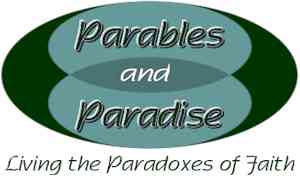
 |
Session
1
|
Compare these versions of the parable of the mustard seed.
| Matthew 13:31-32 | Mark 4:30-32 | Luke 13:18-19 | Thomas 20 |
| He put before them another parable: "The kingdom of heaven is like a mustard seed that someone took and sowed in his field; 32 it is the smallest of all the seeds, but when it has grown it is the greatest of shrubs and becomes a tree, so that the birds of the air|heaven come and make nests in its branches." | He also said, "With what can we compare the kingdom of God, or what parable will we use for it? 31 It is like a mustard seed, which, when sown upon the ground, is the smallest of all the seeds on earth; 32 yet when it is sown it grows up and becomes the greatest of all shrubs, and puts forth large branches, so that the birds of the air|heaven can make nests in its shade." | He said therefore, "What is the kingdom of God like? And
to what should I compare it? 19 It is like a mustard seed that someone took and sowed in
his garden; it grew and became a tree, and the birds of the air|heaven made nests in its
branches." |
The disciples said to Jesus, "Tell us what the Kingdom of Heaven is like." He said to them, "It is like a mustard seed, the smallest of all seeds. But when it falls on tilled soil, it produces a great plant and becomes a shelter for birds of the sky." |
INFORMATION ABOUT ANCIENT GARDENING PRACTICES:
Mustard is an annual plant whose seeds are indeed among the very smallest. (People in Jesus' time did not know about the orchid whose seed is the smallest.) It was a common plant which grew and spread like a weed in the eastern world. Though it could grow to a height of six feet or more, a mature mustard plant would not normally be described as a "tree." Usually it was described as a shrub or bush.
JEWISH GARDENING PRACTICES
- No kind of seed may be sown in a garden-bed, but any kind of vegetable may be sown in it. Mustard and small beans are deemed a kind of seed. Mishnah, Kilaim 3.2
- Mustard seed and small beans, even though they be planted to be used as vegetables (i.e., greens), may not be planted in a garden. Tosephta, Kilaim 2.8
GREEK GARDENING PRACTICES
- There are three seed-times for all things grown in gardens,.. [In the winter period] is sown beet, lettuce, rocket, monk's rhubarb, mustard, coriander, dill, cress... Theophrastus, Enquiry into Plants VII
ADDITIONAL BIBLICAL BACKGROUND:
Thus says the Lord God: I myself will take a sprig from the lofty top of a cedar; I will set it out. I will break off a tender one from the topmost of its young twigs; I myself will plant it on a high and lofty mountain. {23} On the mountain height of Israel I will plant it, in order that it may produce boughs and bear fruit, and become a noble cedar. Under it every kind of bird will live; in the shade of its branches will nest winged creatures of every kind.
|